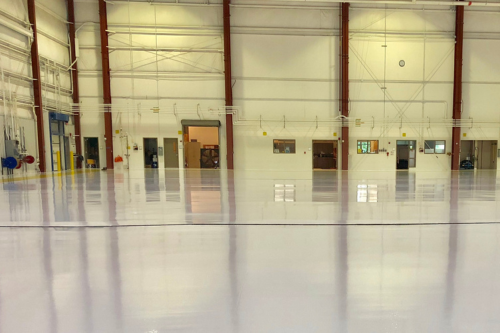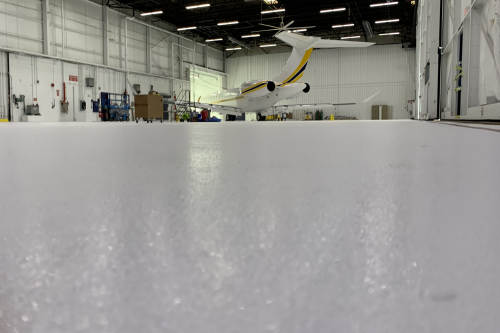WHAT IS THE DIFFERENCE BETWEEN EPOXY COATINGS AND EPOXY PAINT?
In the realm of protective finishes, epoxy products are prized for their remarkable durability, resistance properties, and versatility. Two common options are epoxy coatings and epoxy paints. Significant differences exist between the two, including durability, curing mechanisms, resistance benefits, and their respective applications.
Let’s take a look at the two…

Epoxy Coating vs. Epoxy Paint: Understanding the Difference
Epoxy coatings and epoxy paints both contain epoxy resins as their key components, yet their formulations and purposes are different.
Epoxy coatings are designed with a higher ratio of epoxy resins to other ingredients, resulting in a thicker and more substantial protective layer when applied. Epoxy paints, on the other hand, possess a lower epoxy content that produces a thinner and less robust coating.
This difference explains the disparities in each composition’s respective performance and durability.
The Power of Durability: Why Epoxy Coating Is Stronger
One of the largest differences between epoxy coating and epoxy paint is the level of durability each offers. Epoxy coatings, owing to their higher epoxy resin concentration, provide exceptional durability against abrasion, chemicals, moisture, and other environmental stressors. The thick layer formed by these coatings acts as a formidable barrier, shielding the underlying surface from wear and tear, while epoxy paints are comparatively more susceptible to damage over time.

Curing vs. Drying
A crucial factor contributing to the enhanced durability of epoxy coatings is their curing mechanism. Epoxy coatings undergo a chemical reaction known as curing, where the epoxy resins chemically bond together to form a tough layer. This process transforms the liquid epoxy into a solid, inflexible coating that adheres tightly to a substrate surface.
By contrast, epoxy paints rely on a drying process that involves the evaporation of solvents, which leaves behind a film of epoxy. While drying can create a protective film, it lacks the structural integrity and resilience achieved through curing.
The Resistance Benefits of Epoxy Coating
Epoxy coatings offer excellent resistance to chemicals, making them ideal for environments where exposure to corrosive substances is a concern like chemical plants, laboratories, and industrial facilities.
Epoxy coatings also exhibit remarkable resistance to abrasion and impact. These qualities make them invaluable for protecting high-traffic floors.

Application Usage
Epoxy coatings and epoxy paints find applications in various settings, each capitalizing on their distinct attributes.
Epoxy coatings excel in environments demanding uncompromising protection, such as industrial facilities, manufacturing plants, food processing units, and healthcare facilities. They are also favored in and other areas prone to heavy machinery usage.
Epoxy paints are less robust and are commonly used simply for decorative purposes in applications like walls, ceilings, and furniture.
Whether it's safeguarding industrial equipment, enhancing the longevity of floors, or adding a touch of style, epoxy coatings prove time and again that they are the superior choice when durability and resilience are paramount.
Stonhard is recognized globally for solving flooring problems. We are the world’s largest turnkey, seamless flooring contractor committed to comprehensive management of each project from construction documentation to the final details. Click here to learn about our century-plus history of providing superior resinous solutions.